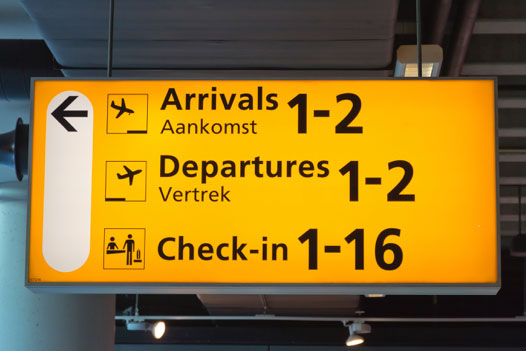Did you know?
1. An Attorney can practice for an entire career and never set precedent.
2. A precedent setting case is a ruling by a court that changes how judges and officials must view and interpret the law on a particular issue.

ADVANCED PAROLE – MATTER OF ARRABALLY
Board of Immigration Appeals (BIA) Matter of Arrabally 25 I. & N. Dec. 771 (BIA 2012) represented by Law Offices Jon E Jessen LLC is a significant precedent-setting case that saw the BIA reconsider its own reasoning and interpretation on what constitutes a “departure” for immigrants traveling on Advanced Parole.
Background: Arrabally and his wife attended a Green Card interview that was based on an approved employer petition. The officer informed the couple that he intended to approve their Green Card applications but that they would have to wait until their visa number was current (each country is assigned a visa quota per year). Arrabally and his wife urgently needed to travel to India as both had elderly parents who needed immediate attention. They were advised to file for an Advanced Parole (immigration travel document). Once granted, they left the United States and were in India when Arrabally’s father died. On their return to the United States, they were placed in Removal Proceedings because their departure had triggered a ten-year bar, thereby making them ineligible for their pending Green Cards. At this time, they became clients of Law Offices Jon E Jessen LLC. After an Immigration Judge ordered them deported, we filed an appeal with the Board of Immigration Appeals (BIA). On appeal our argument persuaded the BIA to reconsider over a decade of interpretation on Advanced Parole and the issue of “departure”. The twelve-page decision clearly outlined that an immigrant traveling on Advance Parole is no longer considered to have “departed” the United States.
Why is this case important? This is a precedent-setting case. It changed the law for all immigrants who travel outside the United States on an Advanced Parole. Departure on an approved Advanced Parole document can no longer cause serious unintended consequences to an immigrant with a pending Green Card case. Attorneys throughout the country have since been able to apply this precedent decision to other cases and other legal issues.

RIGHT TO APPEAL – PROTECTED
Second Circuit Court of Appeals New York City,
Melnitsenko v. Mukasey, 517 F.3d 42 (2d Cir. 2008), represented by Law Offices Jon E. Jessen is an important precedent-setting case that clarified and protected an immigrant’s right to file a “Motion to Reopen” after the issuance of a deportation order before the Board of Immigration Appeals (BIA).
Background: Melnitsenko and her U.S. citizen finance were returning from a weekend vacation when they were stopped at a temporary immigration checkpoint in Vermont. Melnitsenko was placed in Removal Proceedings. The Immigration Judge ordered her deported. An appeal was filed with the Board of Immigration Appeal (BIA), which was also denied.
Melnitsenko married her U.S. Citizen fiancé, providing grounds to reopen her deportation order as she now had a path to legal status. Law Offices Jon E Jessen LLC filed a Motion to Reopen (MTR) with the BIA within the required ninety-day period. In or around 2006 it was common practice for the government to object to MTR’s without providing legal reasoning. The government objected to Melnitsenko’s MTR and therefore it was denied.
Law Offices Jon E Jessen LLC filed an appeal with the Second Circuit Court of Appeals, setting forth clear and concise objections to this practice. The Second Circuit agreed with our reasoning and ruled in favor of Melnitsenko. The Court held that the BIA could not deny Melnitsenko’s motion solely on the fact that the government had objected. Instead, the government and the BIA must provide specific facts and legal reasoning when objecting to an MTR.
Why is this case Important? This case protects immigrants’ right to appeal. The government and the BIA can no longer deny a “Motion to Reopen” on the sole ground that the government raised an “objection”. Instead, legal and factual reasoning must be provided with the objection. This case has been cited in numerous arguments by attorneys advocating on behalf of their clients.

AIRPORT IMMIGRATION STOPS
Second Circuit Court of Appeals case
Pinto-Montoya v. Mukasey 540 F.3d (2008), represented by Law Offices Jon E Jessen LLC set precedent in that it upheld government protocols used by immigration officials to stop and question certain individuals concerning their immigration status in an airport.
Background: Pinto-Montoya, two brothers who arrived at JFK International Airport on a domestic flight from Florida. They were profiled and stopped by U.S. Customs and Border Protection officials in the air-bridge, just as they exited the plane. They were then questioned about their immigration status. The brothers were placed in Removal Proceedings and subsequently ordered deported. An appeal was filed with the Board of Immigration Appeals (BIA) and then the Second Circuit Court of Appeals, arguing that the stop was illegal. The Court held that the stop was legal because the brothers willingly answered the questions, and that a reasonable person would have known that they were not obligated to answer the questions. The Court also upheld the right of the government to question certain individuals concerning their immigration status at an airport.
Why is this case Important? This is important as it confirms that a person who fits a certain criteria may be legally stopped and questioned at an airport. It also confirms the importance of a person’s right to remain silent.
